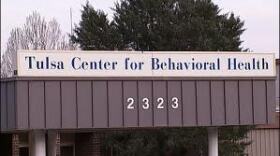On this edition of ST, we speak with Dr. Stephen P. Hinshaw, Professor of Psychology at the University of California, Berkeley, and Vice-Chair for Psychology in the Department of Psychiatry at the University of California, San Francisco. Dr. Hinshaw is also the editor of "Psychological Bulletin" --- and the co-author of a new book, "The ADHD Explosion: Myths, Medication, Money, and Today’s Push for Performance," which he discusses with us today. Attention-deficit/hyperactivity disorder (or, more commonly, ADHD) is one of the most controversial and misunderstood medical conditions in existence. Major questions surround this disorder, such as: Why are one in nine children and adolescents in the US now diagnosed with ADHD, with projected rates still rising? Why are nearly 70% of those diagnosed with ADHD prescribed medication? And more generally, what's driving the current "ADHD explosion" --- is it parents, doctors, schools, our healthcare system, our very culture, and/or Big Pharma? Dr. Hinshaw talks about these queries with us, while also pointing out that there's a simultaneous over-diagnosis and under-diagnosis of ADHD now happening in American society. And further, as was noted of "The ADHD Explosion" in Publishers Weekly: "[The book's co-authors] explore the history of ADHD and its 'mammoth cost level' --- over $100 billion a year --- as well as its biology and genetics, drug and behavioral treatment, the myth that ADHD is a problem of fidgety suburban boys, and the stark school and policy differences from state to state, illustrating the need for 'careful evaluation and diagnosis, responsive treatment, use of multi-modal interventions, and adequate monitoring of treatments.' The stories of children and adults suffering with the disorder, however, make the best case for a nation’s change in attitude and behavior. 'Hard numbers are difficult to come by,' the authors note, 'but tens if not hundreds of thousands of kids' exist in a netherworld of chronic problems associated with ADHD. This powerful, fact-packed survey is complex, thought-provoking, and urgent."
"The ADHD Explosion: Myths, Medication, Money, and Today's Push for Performance"











